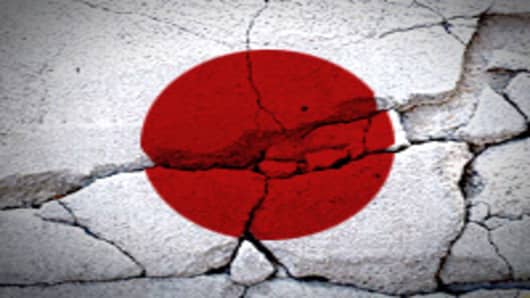The Japanese finance ministry will hold crisis talks with bond dealers in the world's largest government debt market on Friday, amid growing fears about the impact of a political stand-off on the nation's finances.
In an echo of worries in the US over the fiscal cliff – the $600 billion of spending cuts and tax increases due to take effect in January – Japanese politicians are at loggerheads over a bill that would allow the government to borrow the Y38.3 trillion ($479 billion) needed to finance the budget deficit this year.
As a condition for supporting the bill, opposition parties are demanding that Yoshihiko Noda, prime minister, fulfil a pledge to call a general election. Mr. Noda has so far refused to set a date out of fears that his ruling Democratic Party of Japan, which is adrift in the polls, will be voted out of office.
Bond dealers said they had requested the special meeting with the Ministry of Finance to express their concerns about the stand-off and discuss possible contingency plans. "Political developments are becoming a real fear for the markets," said Chotaro Morita, chief rates strategist at Barclays in Tokyo.
Ikuko Shirota, a senior finance ministry official, told the Financial Times that failure to pass the bill by the end of November could result in a "very disastrous situation". Ms Shirota said scheduled bond auctions would have to be scrapped for the first time in decades, meaning the Japanese government – the world's most indebted with gross borrowings of Y976 trillion at the end of June – would run out of money.
(Read More: Japan Closes on China in US Bond Holdings)
Japan's bond market is already showing signs of tension. While short and medium-term bonds remain stable, the extra yield that investors demand to hold 20-year government bonds instead of 10-year bonds has increased to 92 basis points, the most since July 1999, according to data compiled by Bloomberg. Longer-term bonds tend to be more sensitive to questions of fiscal sustainability, say traders.
While most bond dealers expect the DPJ to reach agreement with the main opposition Liberal Democratic party and the smaller New Komeito party, they say they want to work through worst-case scenarios with the finance ministry on Friday.
The dealers – many of whom represent banks with huge holdings of Japanese government bonds – note that Japan relies on the smooth functioning of the JGB market to keep prices from tipping into territory that could cause alarm over the sustainability of its borrowing.
Bargaining over the deficit-financing bill, which must be passed every year, has become a feature of the political calendar in Japan in recent years, as bond receipts have consistently outstripped tax revenues. But this year, the gridlock has lasted longer as both sides dig in.
"Until now, we had viewed the game of chicken between the government [and opposition parties] with a vague sense of optimism," Jun Inshii, chief fixed-income research strategist at Mitsubishi UFJ Morgan Stanley, wrote this week. "However, we must also take into account the possibility of a collision and hard landing."
In early August, Mr. Noda said he would call an election "soon", after opposition parties aligned to support passage of a bill to double Japan's sales tax.


